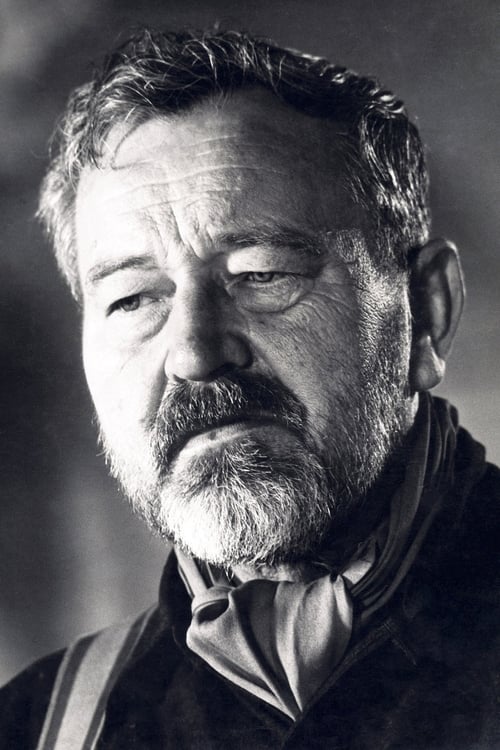
Jan Werich
Nacimiento : 1905-02-06, Praha - Československo
Muerte : 1980-10-31
Historia
Between 1916 and 1924, Werich attended "reálné gymnasium" (equivalent to high school) in Křemencova Street in Prague (where his future business partner, Jiří Voskovec, also studied). He studied law at the Charles University Law School from 1924 to 1927, from which he made an early departure to begin his artistic career and forge one of the most important partnerships of his life.
For more than 10 years he worked in theatre Jiří Voskovec and Jaroslav Ježek. Their partnership was a platform for their numerous left-wing political satires, most notably in the Osvobozené divadlo (Liberated Theatre). The trio's work took inspiration from Dada, with its love of the absurd, a reaction against bourgeois values and the horrors of World War I.
In 1955 he begun working in cinema, and 1960s were a peak in his actor career. From the creation of the ABC Theatre he moved to the City Theatres of Prague and then to the Musical Theatre of Karlin and Nusle. Werich was originally cast by producer Harry Saltzman to play Ernst Stavro Blofeld in the 1967 James Bond film You Only Live Twice. Upon his arrival at the Pinewood set, both producer Albert R. Broccoli and director Lewis Gilbert felt that he was a poor choice, resembling a "poor, benevolent Santa Claus".
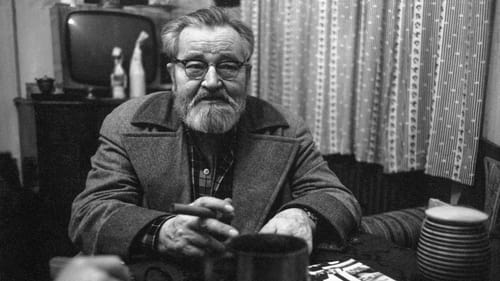
Self (archive footage)
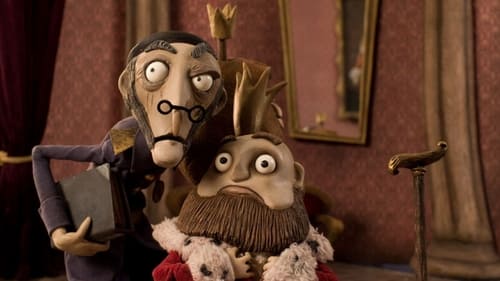
(voice)
The film contains three Jan Werich's fairy tales, each directed by one artist. The first story sets out to the Sumava mountains in Southern Bohemia to find out whether Ogres ever lived there. The middle tale The Hat and the Little Jay Feather concerns a king who sends his three sons to bring back a hat he left at a tavern when he was young. The third and longest fairy tale Reason and Luck is about the two virtues of the title try to prove their importance by changing the life of a pig herder named Louis. Written by

Original Story
The film contains three Jan Werich's fairy tales, each directed by one artist. The first story sets out to the Sumava mountains in Southern Bohemia to find out whether Ogres ever lived there. The middle tale The Hat and the Little Jay Feather concerns a king who sends his three sons to bring back a hat he left at a tavern when he was young. The third and longest fairy tale Reason and Luck is about the two virtues of the title try to prove their importance by changing the life of a pig herder named Louis. Written by

Writer
In this antological film, four fairy tales from the book by Jan Werich, each one by a different director.
Břetislav Pojar directs the story of Thumbelina, Aurel Klimt "The Hunchbacks of Damascus", Vlasta Pospíšilová "Three Sisters and a Ring" and Jan Balej close the film with "The Sea, Uncle, Why is it Salty?".

Narrator
In this antological film, four fairy tales from the book by Jan Werich, each one by a different director.
Břetislav Pojar directs the story of Thumbelina, Aurel Klimt "The Hunchbacks of Damascus", Vlasta Pospíšilová "Three Sisters and a Ring" and Jan Balej close the film with "The Sea, Uncle, Why is it Salty?".
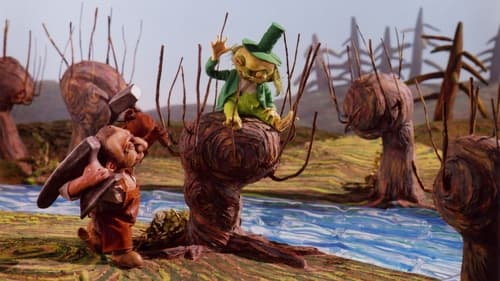
Vypravěč
Pelicula checa de animación con marionetas dirigida a un público adulto basada en las historias del escritor y actor Jan Werich. La película adapta cinco de esos cuentos: “Cuando las hojas caen del roble”, “Frankie Sinmiedo”, “Barka el Avaro”, “Un sueño cumplido” y “Fimfárum”. Los relatos están narrados a la manera de las antiguas fábulas, con un gran entendimiento de la naturaleza humana y de sus vicios, pero son modernas, irreverentes, divertidas, dulces y traviesas, y sus moralejas resultan sorprendentes.

Author

Narrator (voice) (archive sound)
The story is a celebration of the cleverness and wit of the simple peasant Čupera, who triumphs not only over the demon of alcohol, but also over the bureaucratically persistent and thorough devil. The hell that the farmer goes through during the withdrawal process is stylized as a shantytown, a galley with a prison and a dehumanized night club.
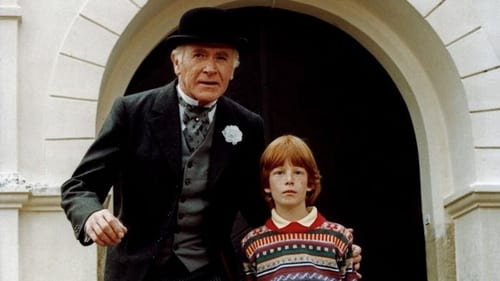
(archive footage)
Pan Tau, the friend of all children, now also helps the adults.
A movie producer is in trouble and decides to shoot another Pan-Tau movie. But the old Pan-Tau actor Karasek is no longer young enough to walk the almost weightless walk of Pan Tau.
Mr. Novak turns up - he resembles Pan Tau like a twin brother. He succeeds every pirouette. And as if by magic, he solves all the problems between people! Who is Mr. Novak? Is he really ...?

Vypravěč
When the village school master discovers the body of a mean-spirited, miserly old woman, with whom he has had a disagreement, he decides to dispose of the body himself without alerting anyone else to it, but when the body is discovered by another villager the same cycle begins again, with the body eventually passing through the hands of half of the village.

Story
It is a story of three veterans released from the army. During one night spent camping in the country they one by one wake up and meet three elvish brothers. Each of the veterans is given a magic item - one gets magic harp that provides him with servants by wish, other one endless pouch of gold and the last one owns magic hat that can create all the staff excluding money and people.

Dr. Spiegler
Philip Scott, the boss of a toy company, is secretly also the chief of a British spy organization. Scott's cover is destroyed when enemy agents kidnap his girlfriend to force him to reveal the identities of his fellow spies.

Self
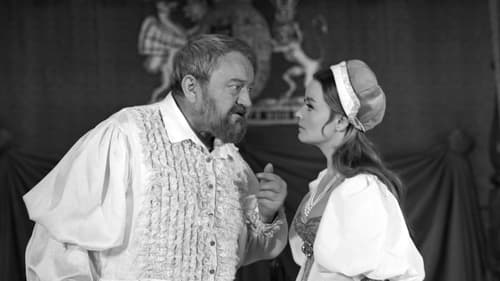
Adaptation

Jindřich VIII.

Theatre Play

Narrator (voice)

léčitel Wohu
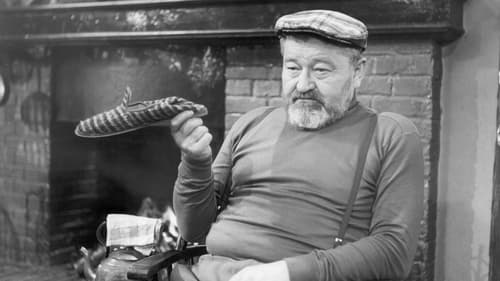
Dědeček

Original Story

Narrator (voice)
While a woman is in the hospital preparing to deliver her child, her husband has all day to reflect upon his wife and their relationship. As he tends to his job as a television repairman, Slavek fondly remembers how he first met Ivana and the days they spent getting to know one another. Slavek also grows increasingly aware of the environment that surrounds him and questions the society his new child will be entering. Loaded with a repeated plea for social change, this is the first feature from Czech writer/director Jaromil Jires.

Adaptation

Screenplay

vkladatel libry

Fedor Akimič Rjebrotěsov
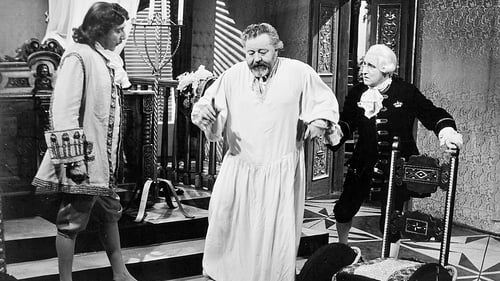
Screenplay
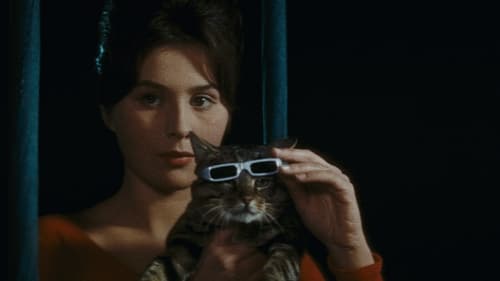
Magician / Oliva
Oliva, un viejo cuentacuentos, cuenta a los niños del profesor Robert la historia de un antiguo amor y su gata mágica que vestía gafas de sol. Al quitarse las gafas, la gata dejaba al descubierto la personalidad de las personas al verse reflejados en diferentes colores. Un día llega un carruaje al pueblo. En el viajan un mago, la bella Diana y la gata mágica. (FILMAFFINITY)
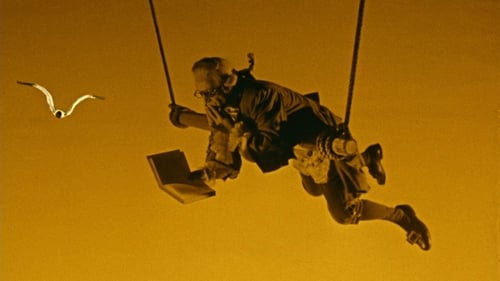
kapitán holandské lodi
El astronauta Toni aterriza en la Luna y tras desmayarse cae en una profunda ensoñación. En su particular alucinación, el viajero estelar se encuentra con míticos visitantes de la Luna como Cyrano de Bergerac, Nicholas, Barbican, Michael Ardan y el barón Münchhausen. Se toman unas copas y el barón, tomando a Toni por habitante lunar, decide llevarlo a la Tierra para que conozca cómo viven los seres humanos. Aterrizan en Constantinopla, donde Blanca, una princesa del harén, se fija en Toni, a quien le pide que la libere. El barón le ayuda entonces a raptarla mediante sutiles métodos como pasarse por la espada a medio ejército aprovechando un apagón. Entonces huyen a caballo y se embarcan en un velero que se ve inmerso en una emboscada de la inmensa armada turca. De nuevo, el ingenio del barón los saca del atolladero y huyen en botes, pero son tragados por una ballena en la cual recorren medio mundo...

statkář Grigorij Stěpanovič Smirnov

Writer

strážný Holofern
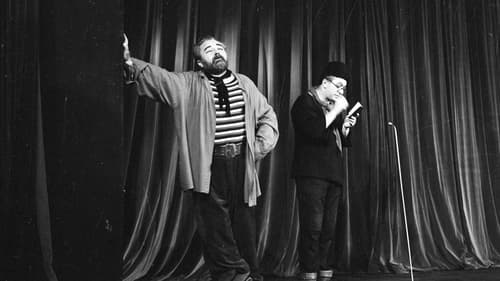
Writer

druhý žoldnéř

Narrator (voice)
La Création du Monde is among the first animated feature films made in France. But to be exact, the film was animated in Czechoslovakia and directed by Eduard Hofman. It is adapted from a series of five books by Jean Effel, a French caricaturist and illustrator. The visual style is adapted from his drawings. The film is a comedy about the creation of the universe in six days, with the devil messing around and contributing in his own way.

Himself

Adaptation
Adapting Jaroslav Hasek's raucous satirical novel, and also bringing Josef Lada's equally famous illustrations to garrulous puppet life, posed Trnka one of his biggest creative challenges. Trnka himself felt that the final episode was the most artistically successful, but there's much to enjoy in all three, not least the way that the lackadaisical layabout Svejk's own self-serving anecdotes are realized through cut-out animation.

Narrator
Adapting Jaroslav Hasek's raucous satirical novel, and also bringing Josef Lada's equally famous illustrations to garrulous puppet life, posed Trnka one of his biggest creative challenges. Trnka himself felt that the final episode was the most artistically successful, but there's much to enjoy in all three, not least the way that the lackadaisical layabout Svejk's own self-serving anecdotes are realized through cut-out animation.

Narrator (voice)

Commentary (voice)
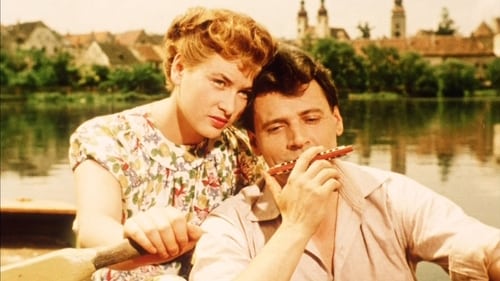
Nadšený divák

Brave Frost (voice)
Two mischievous frost spirits make things chilly for a pair of travelers in this wintry comic folktale.

Dog's Heads (Czech: Psohlavci) is a 1955 Czech drama film directed by Martin Frič, based on the novel of the same name by Alois Jirásek. It was entered into the 1955 Cannes Film Festival.

Dialogue
A selfish self-centered widowed ruler, barely tolerated by his subjects and called appropriately enough, 'King Myself, First' asks his three daughters to name the measure of their love for him. When one of them says, "more than salt", he banishes her from the kingdom. Not understanding what she meant the King assumes love can only be measured by precious metals or one's own talent, the 'correct' answers from his other two daughters. The arrogance of the King leads him to gather all the salt in the kingdom and destroy it. Of course, this backfires as he slowly learns the universal value of the substance, and of course, the essence of his daughter's reply. With the help of the wise and magical old 'herb woman', the King also learns what it means to be a true and wise ruler.

Story
A selfish self-centered widowed ruler, barely tolerated by his subjects and called appropriately enough, 'King Myself, First' asks his three daughters to name the measure of their love for him. When one of them says, "more than salt", he banishes her from the kingdom. Not understanding what she meant the King assumes love can only be measured by precious metals or one's own talent, the 'correct' answers from his other two daughters. The arrogance of the King leads him to gather all the salt in the kingdom and destroy it. Of course, this backfires as he slowly learns the universal value of the substance, and of course, the essence of his daughter's reply. With the help of the wise and magical old 'herb woman', the King also learns what it means to be a true and wise ruler.

Screenplay
A selfish self-centered widowed ruler, barely tolerated by his subjects and called appropriately enough, 'King Myself, First' asks his three daughters to name the measure of their love for him. When one of them says, "more than salt", he banishes her from the kingdom. Not understanding what she meant the King assumes love can only be measured by precious metals or one's own talent, the 'correct' answers from his other two daughters. The arrogance of the King leads him to gather all the salt in the kingdom and destroy it. Of course, this backfires as he slowly learns the universal value of the substance, and of course, the essence of his daughter's reply. With the help of the wise and magical old 'herb woman', the King also learns what it means to be a true and wise ruler.

král Já I.
A selfish self-centered widowed ruler, barely tolerated by his subjects and called appropriately enough, 'King Myself, First' asks his three daughters to name the measure of their love for him. When one of them says, "more than salt", he banishes her from the kingdom. Not understanding what she meant the King assumes love can only be measured by precious metals or one's own talent, the 'correct' answers from his other two daughters. The arrogance of the King leads him to gather all the salt in the kingdom and destroy it. Of course, this backfires as he slowly learns the universal value of the substance, and of course, the essence of his daughter's reply. With the help of the wise and magical old 'herb woman', the King also learns what it means to be a true and wise ruler.

Narrator (voice)

Narrator (voice)

Screenstory
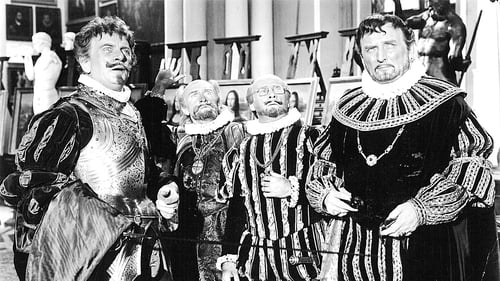
Creative Producer
The Emperor's mismanagement of his country is provoking some in his court to plot to overthrow him. He feels successful, at least, when he discovers the legendary Golem, which he believes can protect him and even cure his imaginary illnesses but, when he disappears while on a bender, his kindly baker, who looks just like him, is mistaken for him, and begins to put things in order. However, the conspirators, not to be outdone, determine to bring the Golem back to life to do their bidding.

Screenplay
The Emperor's mismanagement of his country is provoking some in his court to plot to overthrow him. He feels successful, at least, when he discovers the legendary Golem, which he believes can protect him and even cure his imaginary illnesses but, when he disappears while on a bender, his kindly baker, who looks just like him, is mistaken for him, and begins to put things in order. However, the conspirators, not to be outdone, determine to bring the Golem back to life to do their bidding.

Story
The Emperor's mismanagement of his country is provoking some in his court to plot to overthrow him. He feels successful, at least, when he discovers the legendary Golem, which he believes can protect him and even cure his imaginary illnesses but, when he disappears while on a bender, his kindly baker, who looks just like him, is mistaken for him, and begins to put things in order. However, the conspirators, not to be outdone, determine to bring the Golem back to life to do their bidding.

Emperor Rudolf II / Matheus Kotrba, The Baker
The Emperor's mismanagement of his country is provoking some in his court to plot to overthrow him. He feels successful, at least, when he discovers the legendary Golem, which he believes can protect him and even cure his imaginary illnesses but, when he disappears while on a bender, his kindly baker, who looks just like him, is mistaken for him, and begins to put things in order. However, the conspirators, not to be outdone, determine to bring the Golem back to life to do their bidding.

Screenplay
A poor fisherman catches the golden fish that promises him to fulfil three wishes if he sets her free again. He does so and the fish fulfils two of his three wishes. However, she refuses to fulfil the third one, the last one in which the fisherman’s wife wants to be equal to God.

Story
A poor fisherman catches the golden fish that promises him to fulfil three wishes if he sets her free again. He does so and the fish fulfils two of his three wishes. However, she refuses to fulfil the third one, the last one in which the fisherman’s wife wants to be equal to God.

Narrator (voice)
A poor fisherman catches the golden fish that promises him to fulfil three wishes if he sets her free again. He does so and the fish fulfils two of his three wishes. However, she refuses to fulfil the third one, the last one in which the fisherman’s wife wants to be equal to God.

A documentary about the conquest of Czechoslovakia by the Nazis just prior to World War 2.

Lyricist
One of the few European films of the 30s to criticize the Nazis, even if they couldn't be directly named due to censorship: Gangsters with gray hats stir up trouble in what is obviously the Sudetenland.

Screenplay
One of the few European films of the 30s to criticize the Nazis, even if they couldn't be directly named due to censorship: Gangsters with gray hats stir up trouble in what is obviously the Sudetenland.

Theatre Play
One of the few European films of the 30s to criticize the Nazis, even if they couldn't be directly named due to censorship: Gangsters with gray hats stir up trouble in what is obviously the Sudetenland.

kamelot
One of the few European films of the 30s to criticize the Nazis, even if they couldn't be directly named due to censorship: Gangsters with gray hats stir up trouble in what is obviously the Sudetenland.
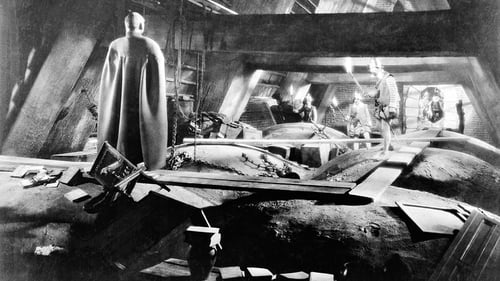
Theatre Play
El Golem, un ser gigantesco creado por un rabino a partir de la arcilla, adquiere vida para proteger a los judíos de Praga de la persecución.

Lyricist
Curious citizens await the arrival of an important guest, the son of poacher, who became famous abroad. Begins celebration in his honor, but nobody knows that instead of the hero arrived cursory prisoner number 1313. He quickly understand how things are and decides to take the opportunity and very quickly gets into a new role.

Ferdinand Kaplan
Curious citizens await the arrival of an important guest, the son of poacher, who became famous abroad. Begins celebration in his honor, but nobody knows that instead of the hero arrived cursory prisoner number 1313. He quickly understand how things are and decides to take the opportunity and very quickly gets into a new role.
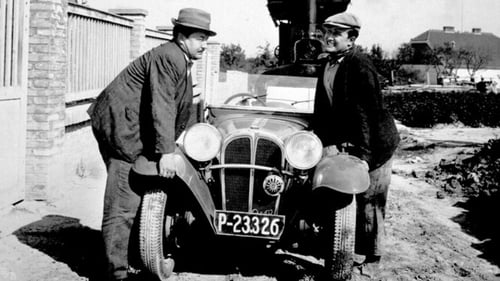
Screenplay
A Milk-Cannery baron, Jakub Simonides, is broken by the Canned Milk-Trust and, in his wanderings with a worker, Filip Kornet, he discovers he still owns a half-finished apartment-house. They rally the workers and complete the building for use as a collectivist dairy. The cooperative flourishes and after a chase/pursuit with the police, pratfalls, slapstick and various crashes, the workers buy out the Milk-Trust.

Story
A Milk-Cannery baron, Jakub Simonides, is broken by the Canned Milk-Trust and, in his wanderings with a worker, Filip Kornet, he discovers he still owns a half-finished apartment-house. They rally the workers and complete the building for use as a collectivist dairy. The cooperative flourishes and after a chase/pursuit with the police, pratfalls, slapstick and various crashes, the workers buy out the Milk-Trust.

A Milk-Cannery baron, Jakub Simonides, is broken by the Canned Milk-Trust and, in his wanderings with a worker, Filip Kornet, he discovers he still owns a half-finished apartment-house. They rally the workers and complete the building for use as a collectivist dairy. The cooperative flourishes and after a chase/pursuit with the police, pratfalls, slapstick and various crashes, the workers buy out the Milk-Trust.

Story
A czech film that focuses on an unfaithful husband who married in to money, as well as an impoverished man who is turns to theft.

Screenplay
A czech film that focuses on an unfaithful husband who married in to money, as well as an impoverished man who is turns to theft.

Tonda
A czech film that focuses on an unfaithful husband who married in to money, as well as an impoverished man who is turns to theft.

Producer

Screenplay

Story































